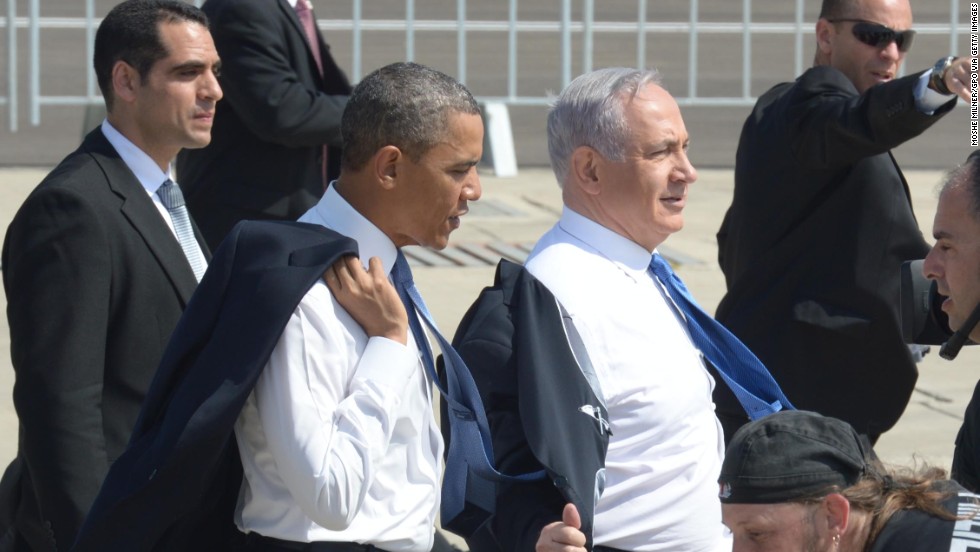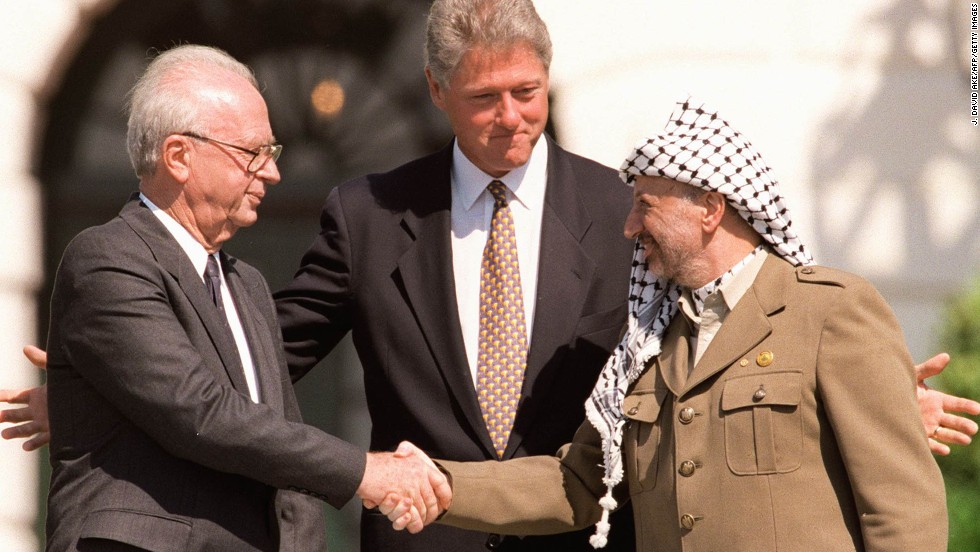Story highlights
- Obama and Netanyahu meet at the White House
- Diplomatic overtures between the U.S. and Iran are a key topic
- Both leaders say Iran's words must be backed up by actions
- The relationship between Obama and Netanyahu has been strained
President Barack Obama once again finds himself in the middle of a high-stakes, tension-fraught meeting with a key leader from the Middle East.
Must be Monday.
Just days after a historic phone call with Iranian President Hassan Rouhani, the U.S. president met with his Israeli counterpart, Benjamin Netanyahu, at the White House late Monday morning.
The relationship between Obama and Netanyahu has been one of the more strained in the history of the two nations. Obama has come under criticism from some Israelis for what they perceive as a lack of enthusiasm toward pro-Israeli policies and interests.
In March, Obama made his first visit to Israel as president, a charm offensive to reassure Israelis that the United States is committed to its security.
On Monday, Obama said he has a "good working relationship" with Netanyahu, and he didn't mince words when talking about U.S. support of Israel.
"Our unshakeable bond with the Israel people is stronger than ever," he said. "Our commitment to Israel's security is stronger than ever."
But beyond the handshakes and smiles the two leaders shared while talking to reporters about their meeting, this week will be a test of how they can work together.
Both leaders said the new diplomatic overtures between the United States and Iran were a key topic for them on Monday.
As he boarded his flight to the United States for his meeting with Obama and his appearance at the U.N. General Assembly, Netanyahu threw cold water on the developments.
"I will tell the truth in the face of the sweet talk and the onslaught of smiles," he said. "One must talk facts, and one must tell the truth."
After his meeting with Obama, Netanyahu seemed to strike a more accepting tone while stressing that preventing Iran from developing nuclear weapons is "the most important challenge" that both nations face.
"I appreciate deeply the fact that you have made clear that you remain committed to this goal. I also appreciate the statement you made that Iran's conciliatory words have to be met by real actions -- transparent, verifiable, meaningful actions," he said. "Iran is committed to Israel's destruction, so for Israel, the ultimate test of a future agreement with Iran is whether or not Iran dismantles its military nuclear program. ... That's the bottom line."
Netanyahu said sanctions against Iran should continue and even strengthen if Iran continues to advance its nuclear program during negotiations.
"If diplomacy is to work, those pressures should be kept in place. And I think they should not be lessened until there's verifiable success," he said.
Obama said that if Iran wants sanctions relief, it will have to meet "the highest standards of verifications."
"It is absolutely clear that words are not sufficient," Obama said. "We have to have actions that give the international community confidence that, in fact, they are meeting their international obligations fully and that they are not in a position to have a nuclear weapon."
In the latest indication of Tehran's new approach to relations with Washington, Iran's Fars News Agency reported that Rouhani wants to establish direct flights between Iran and the United States.
The news agency cited the head of the High Council of Iranian Affairs Abroad, Akbar Torkan, as saying that Rouhani had instructed him to look into how to establish direct flights between the two countries.
Over the weekend, Israel said it arrested an Iranian-born man and accused him of spying for Tehran.
According to the Israeli government, the alleged spy was carrying photos of various sites, including the U.S. Embassy in Tel Aviv.










































